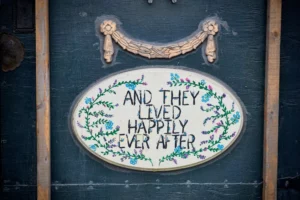When Jefferson Bethke was only 22 years old, he produced a YouTube video called “Why I Hate Religion, But Love Jesus,” in which he performed a spoken word poem that — to his surprise — got over 28,000,000 views. Almost overnight, it catapulted him into a career as a successful online evangelist and an interview on The Boundless Show. Bethke has since written a book called Jesus > Religion, and at age 25, he is married with a new baby. In the meantime, Bethke has continued churning out YouTube videos on his channel, which has over 56,000,000 views to date.
Jefferson was kind enough to talk with us for a little bit about his life, and in doing so, gives some great insight into what it feels like to have a YouTube video go viral.
1. Describe how it felt to go from obscurity to being one of the most visible faces in Christian media overnight. Did you feel a little overstimulated by the whole experience?
Completely overstimulated. I don’t think a human is created to sustain that kind of pressure or spotlight. Honestly, if you think about it, besides the last 10 years, no one in history has been able to make that jump so quickly. For me though it taught me a lot about identity. God really used it to uproot and highlight things I hadn’t really dealt with yet since coming to Jesus. I realized a lot of my behavior was for different types of approval of man (to be loved, known, valued, etc.), and when people critiqued me and I was crushed, it showed me that’s where my anchor was. That’s where I was putting my hope. I think I heard a quote that says, “If you live for people’s approval, you’ll die by their rejection.” That’s basically what God showed me painfully that first month or two, but I’m so thankful He did.
2. What was one critique you got about “Why I Hate Religion, But Love Jesus” that was a hard punch to the gut?
It wasn’t really a particular critique — the hardest thing was being misunderstood. I wasn’t able to track down every report or blog since it went so viral, so to some degree I had to just live with being misunderstood. Reading critiques of the video, some of them I’d read and say, “Yes! I totally agree with you!” which leaves you in an interesting conundrum. But similar to the first question, it really taught me a lesson on faithfulness, humility and such. If I messed up, I would repent. If I could fix something, I would fix it. And if something was falsely said or misunderstood, I could attempt in humility to correct it. But there was no need to get angry, defensive or hurt. I think before I’d feel it was an attack on me, but I eventually realized it was just an opportunity to grow. I had to decide that either the critiques were right, so we need to change, or they were wrong, and Jesus is our defense, so we don’t need to worry about it.
3. A lot of Christians are working very hard to get noticed online and build a platform. What advice do you have for them?
This is a tough one since I did it completely by accident. The biggest thing I’d say is make something you deeply care about and love (that you’d do or want to do even if the results didn’t come), and also find something or do something that brings people value in their lives (whether that’s making bookshelves, building houses, or preaching). That’s what people seem to gravitate toward online.
4. You and your wife minister to a lot of single believers, and as you know, churches are full of attractive, smart Christian women who are moving into their 30s without any prospect for marriage. What encouragement do you have to offer those ladies?
I’d say don’t waste your singleness. A lot of times we buy this lie that our single lives are J.V. lives, and when we get married, then that’s when life will really start. But the truth is, your life starts at birth. You can live a fully human existence without a marriage partner, and concentrating on that actually puts you in a really healthy spot when that person does come along. Also, prayer and community are a must. Pour your heart out to the Lord — the struggles, hurts, rejection, bitterness — all of it. He is big and can take it, and that’s basically what a good chunk of the Psalms are too, so you’re in good company. And the community part: I know for me, having people walk with me in all seasons of life, people who can see everything and have a full pass to call stuff out in me — that’s a good place to be, and grace is right there in the middle of those relationships.
5. In what ways has your marriage humbled you?
I’d say the most humbling thing would be the closeness of intimacy and all that comes with that. To truly experience marriage at its best, and in God’s intention, we have to drop the act. Our tendency is to hide sin, hide our failures, hide our selfishness, but in marriage those things are on full display because of the closeness of the relationships. Joy and intimacy go hand in hand, and there’s no closer relationship than a marriage relationship where two become one. The beauty of being fully known and seen, while being fully accepted and loved, is where the true joy lies, and that is humbling.
Thanks for stopping by Boundless, Jefferson. And to the Boundless readers, you can follow Jefferson @JeffersonBethke.












